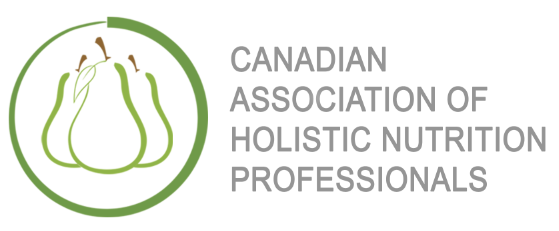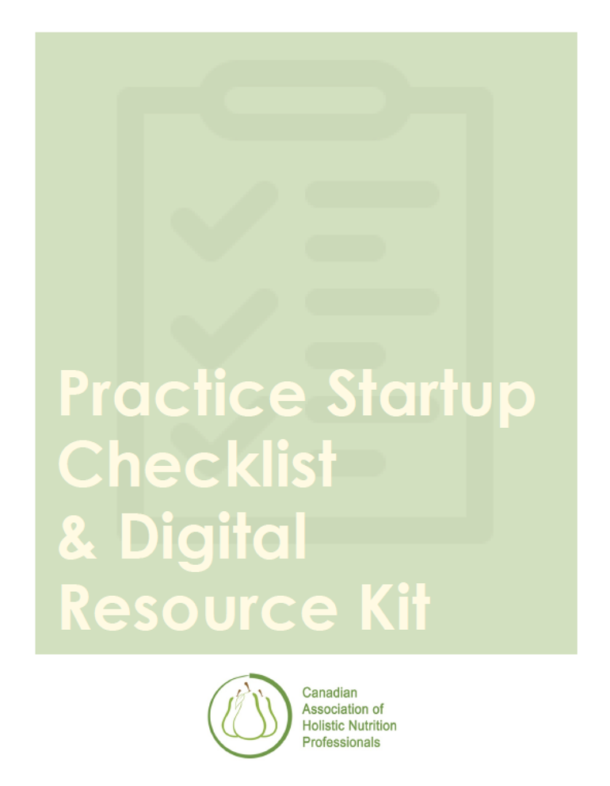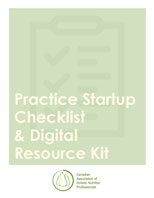Code of Ethics
Code of Ethics
For Members of the Canadian Association of Holistic Nutrition Professionals
Purpose
This Code of Ethics serves as a guiding framework for ethical conduct among members of our association. It outlines the standards of professionalism, integrity, and client care that all holistic nutrition professionals and functional nutrition practitioners affiliated with our organization are expected to uphold. These ethical principles support reflective practice, informed decision-making, and accountability in the fields of holistic and functional nutrition.
Core Values
Our Code of Ethics is grounded in the following core values:
- Competency
Members are expected to provide safe, informed, and effective services, using their education, training, and sound judgment to support client health responsibly. - Efficacy
We believe in the potential of holistic and functional nutrition to positively impact health outcomes. Ethical research and evidence-informed practices are essential to support this work. - Respect
Each individual is treated with inherent dignity, regardless of background or belief. Respect for clients, colleagues, and the public is fundamental to our professional conduct. - Choice
Clients have the right to make informed decisions about their care and receive clear information about their options. - Inclusiveness
We promote accessible and equitable care, recognizing the diverse needs of clients across various cultural and socioeconomic backgrounds. - Integrity
We are committed to honesty, transparency, and trustworthiness in all our professional interactions.
Ethical Responsibilities
- Promoting Client Wellbeing (Beneficence)
Holistic nutrition professionals and functional nutrition practitioners strive to enhance the health and quality of life of their clients. Members agree to:
- Acknowledge and respect the dignity and autonomy of each client.
- Place the client’s best interest at the center of their work.
- Honor individual values, perspectives, and cultural backgrounds.
- Uphold honesty and transparency in all professional communications.
- Commit to high standards of practice in holistic and functional nutrition.
- Extend respect to peers, the profession, and society.
- Support and celebrate the growth and accomplishments of fellow practitioners.
- Prioritize their own health and self-care to effectively support others.
- Engage in ongoing learning and professional development.
- Value the trust placed in them by clients and uphold the responsibilities of the role.
- Contribute to mentorship and skill development of newer professionals.
- Advocate for equitable access to holistic and functional nutrition services.
- Support the advancement of the profession through research, advocacy, and public education.
- Preventing Harm (Non-Malfeasance)
Holistic nutrition professionals and functional nutrition practitioners have a duty to avoid causing harm and to take proactive steps to prevent it. Members agree to:
- Provide conscientious, skillful care with the client’s safety as a top priority.
- Accurately represent their qualifications and experience.
- Clearly communicate the nature and scope of services.
- Ensure clients are aware of all fees before services begin.
- Honestly discuss the potential benefits and limitations of any approach.
- Practice within the boundaries of their knowledge and skills.
- Refer clients to other qualified professionals when appropriate.
- Maintain continuity of care or provide adequate notice when ending a client relationship.
- Comply with human rights legislation, privacy laws, and any applicable regulations.
- Provide care without discrimination of any kind.
- Reserve the right to decline treatment that may pose a risk to either the client or practitioner.
- Avoid exploiting clients for personal gain in any form.
- Honor the client’s right to informed, voluntary consent.
- Obtain consent from a parent or legal guardian when legally required.
- Maintain appropriate boundaries and never engage in sexual or inappropriate conduct with a client.
- Avoid dual relationships that may impair professional judgment or harm the client.
- Create a safe, respectful, and hygienic care environment.
- Safeguard client confidentiality and handle personal information in accordance with relevant laws.
- Share client information only with consent or when legally required to do so.
- Ensure accuracy in all client records and documentation.
- Refrain from practicing while impaired or under the influence of substances.
- Avoid deceptive or misleading advertising and marketing practices.
- Maintain professionalism in all interactions with clients, colleagues, and the public.
- Conduct or participate in research only when it meets ethical and legal standards.
- Avoid any conduct that could damage the credibility of the profession.
- Report unsafe, unethical, or illegal behavior by peers or other healthcare providers to the appropriate authorities.
Glossary of Key Terms
- Beneficence: The ethical obligation to act in ways that enhance client wellbeing.
- Non-Malfeasance: The responsibility to do no harm and to prevent harm where possible.
- Competency: The combination of knowledge, skills, and judgment necessary to deliver safe,
- effective care.
- Informed Consent: A voluntary agreement by a client, based on full understanding, to receive care or services.
- Dual Relationship: A situation in which a practitioner holds a second role with a client (e.g., personal, financial) that could interfere with objectivity or boundaries.
- Integrity: Acting with honesty, consistency, and transparency in fulfilling responsibilities.
- Efficacy: The capacity of an approach or intervention to achieve the desired positive outcomes.
- Ethical Research: Research conducted in ways that protect the rights, dignity, and safety of all participants.


